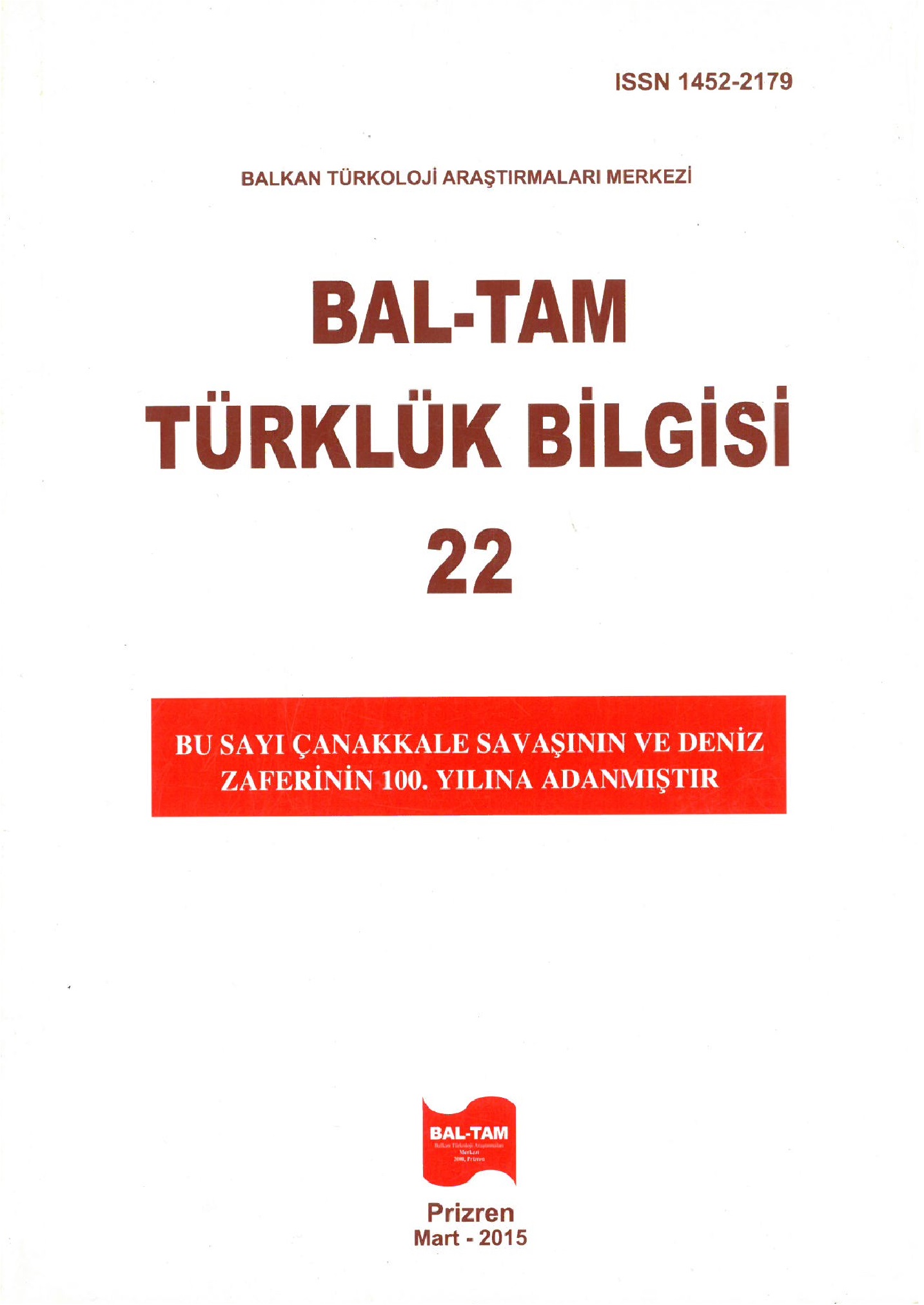Author :
Abstract
Bu makale, Süleyman Askeri Bey'in Osmanlı Devletimdeki siyasi ve askeri
faaliyetlerini konu edinen bir araştırmadır. Bir biyografi çalışmasına dayanan bu
araştırma, Süleyman Askeri Bey ekseninde şu sorulara cevap aramaktadır:
Çocukluğunun ve gençliğinin geçtiği Balkanlardaki komitacı ve çeteci atmosfer,
onun yaşamını ne şekilde etkilemiştir? Çok genç yaşta Teşkilat-ı Mahsusa'nın
reisliğine seçilmesinin sebepleri nelerdir? Enver Paşa ile olan ilişkileri ne
düzeydedir? Araştırma, Başbakanlık Osmanlı ve Genelkurmay Başkanlığı Ataşe
Arşivleri ile bir takım, hatıraları temel alarak hazırlanmıştır. Trablusgarp ve
Balkan Savaşları sırasında görev yapan vatanperver subaylardan oluşan informel
yapı, I Dünya Savaşı öncesi Teşkilat-ı Mahsusa bünyesinde formelleşmiştir. XIX.
Yüzyılda Balkanlardaki isyanlar Osmanlı yönetici ve subaylarında bir güvenlik
algısı oluşturmuştur. Dolayısıyla yıkılma travması yaşayan subaylar, bu sıkıntıyı
ortadan kaldırabilmek amacıyla cepheden cepheye koşmuşlardır. Bu bağlamda
Süleyman Askeri Bey de 1912-1915 yılları arasında Afrika (Trablusgarp), Avrupa
(Balkanlarj ve Asya (Irak) Kıtaları'nda kendisine verilen görevleri hiç
sorgulamadan layıkıyla yerine getirmeye çalışmıştır. Zira onun başarısızlığa hiç
tahammülü yoktur. Nitekim 1915'te Irak'ta Ingilizlere karşı uğradığı mağlubiyeti
hazmedemiyerek intihar etmiştir.
Keywords
Abstract
This article studies the political and military activities o f Süleyman Askeri
Bey (1884-1915) in the Ottoman Empire. By examining his life story, this research
is an attempt to understand the following questions about Süleyman Askeri Bey: in
what ways did the komitadji environment o f the Balkans where he grew up come
to influence his later years? Why was he chosen as the head o f the Special
Organization at a very young age? How was his relationship ilke with Enver
Pas ha? İn answering such questions, this article us es sources from the Archives of
the Turkish Chief o f Staff as well as from the Prime Ministry Ottoman Archives,
complemented by a select us e o f memories. I argue that the the informal structures
that brough together a number o f patriotic offıcers during the Tripolitanian War
o f 1911 and the Balkan Wars o f 1912-13 were institutionalized into what was known as the Special Organization right before the First World War. The
rebeüions in the Ottoman Balkans during the nineteenth century has contributecl
to a growing sense o f insecurity shared by a number o f Ottoman administrators
and ojfıcers, including Süleyman Askeri. Throughout these years, ojfıcers like him
who deeply fel t the trauma o f an impending Ottoman collapse ran from one front
to another in multiple roles. It was in this context where Süleyman Askeri Bey
spent the years o f 1912-1915 in Tripoli, the Balkans, and Iraq respectively. With
low tolerance o f any failures, Süleyman Askeri Bey would commit silicide in 1915
after his defeat in Iraq by the English forces.





